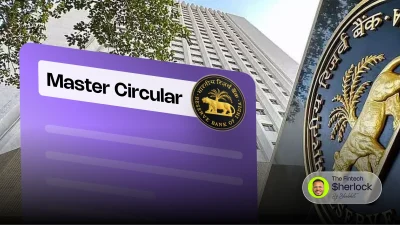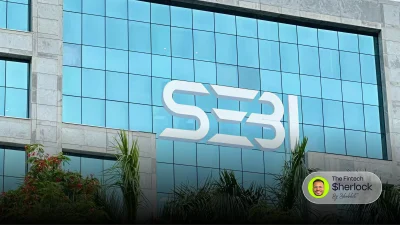One RBI circular. A small clarification. A big shift in how farm credit services work in India.
Access to formal credit in rural India has long depended on trust, timing, and clarity. Farmers and small entrepreneurs often face delays not because credit is unavailable, but because lending rules are unclear or inconsistently interpreted. A recent RBI circular addresses this gap by bringing much-needed clarity to farm credit services, particularly for agri loans and small business loans.
The clarification allows banks to accept voluntary pledges of household gold and silver for eligible loans without removing collateral-free benefits. While this may appear to be a minor regulatory update, it significantly improves how farm credit services function across rural and semi-urban India.
Why This RBI Circular Matters
For years, banks were cautious about accepting gold or silver for loans under collateral-free limits. The concern was regulatory: would such loans lose their classification or reporting benefits? This uncertainty slowed farm credit services and delayed access to agri loans and business loans, especially for borrowers who needed funds urgently.
The latest RBI circular removes this ambiguity. Banks can now confidently accept voluntary pledges of physical gold or silver while keeping loans within the collateral-free framework. This clarity improves turnaround time and builds trust in formal lending.
What the RBI Circular Clarifies
The RBI has clearly stated that banks may accept voluntary pledges of household gold and silver for eligible loans without reclassifying them as secured loans.
This applies to:
- Agri loans
- MSME-linked small business loans
- Other qualifying business loans under priority sector norms
Most importantly, this clarification strengthens farm credit services without weakening borrower protection.
Voluntary Means Borrower Choice
A core principle of the RBI circular is borrower autonomy.
No borrower can be forced to pledge gold or silver. The decision must be voluntary.
This ensures that farm credit services remain inclusive while giving lenders flexibility to reduce delays and manage operational risk responsibly.
Impact on Agri Loans and Rural Credit
For farmers, delays in credit can disrupt sowing cycles or push them toward informal lenders. With this clarification:
- Agri loans can be approved faster
- Banks can act without regulatory hesitation
- Farm credit services become more responsive to seasonal and emergency needs
This directly improves rural credit access and borrower confidence.
What This Means for Small Business Loans
The impact extends beyond agriculture. Many rural and semi-urban entrepreneurs depend on small business loans to run shops, trading units, or allied services.
Under the RBI circular, banks can:
- Process small business loans more efficiently
- Maintain priority sector classification
- Offer flexible business loans without regulatory confusion
As a result, farm credit services now support both farmers and rural entrepreneurs more effectively.
The Role of KYC and Compliance
Greater flexibility must be supported by strong controls. Banks and fintechs must ensure:
- Clear borrower consent for voluntary pledges
- Transparent documentation
- Robust KYC and audit trails
This is where structured compliance frameworks, aligned with KYC Federal Bank standards, become essential. Strong KYC ensures farm credit services scale safely without increasing regulatory risk.
A Real-World Example
A small farmer applies for ₹1.9 lakh under farm credit services to invest in irrigation equipment.
Earlier, offering gold could complicate loan classification.
Under the new RBI circular:
- The farmer voluntarily pledges household gold
- The loan remains collateral-free
- Approval is faster
- Dependence on informal credit is avoided
This is the practical impact of the clarification on agri loans and small business loans.
Where BeFiSc Fits In
While the RBI circular provides clarity, execution is where many lenders face challenges.
BeFiSc helps banks and fintechs operationalise regulatory guidance by:
- Designing workflows that clearly distinguish voluntary collateral from mandatory security
- Embedding RBI-aligned compliance checks into farm credit services
- Strengthening borrower verification and consent flows
- Supporting KYC frameworks aligned with KYC Federal Bank–style processes
- Reducing operational and regulatory risk across agri loans and business loans
This allows lenders to move fast without cutting corners.
Why This RBI Circular Is Important
The RBI has not introduced a new rule—it has removed confusion.
This clarity:
- Strengthens farm credit services
- Improves access to agri loans
- Makes small business loans more reliable
- Encourages formal business loans over informal borrowing
By aligning regulation with real-world lending behaviour, the RBI has taken a meaningful step toward inclusive credit.
Conclusion
The latest RBI circular brings much-needed clarity to farm credit services in India. By allowing voluntary gold and silver pledging while preserving collateral-free benefits, it improves how agri loans, small business loans, and business loans are delivered—especially in rural and semi-urban regions.
With strong compliance and KYC frameworks in place, this clarity can translate into faster credit, lower risk, and greater trust.
Building or scaling farm credit services under evolving RBI circulars?
BeFiSc helps lenders translate regulatory clarity into compliant, real-world lending workflows.
FAQs
1. How does this RBI circular impact farm credit services?
It allows voluntary gold or silver pledging without affecting collateral-free status, making farm credit services faster and more flexible.
2. Can gold be used for agri loans under collateral-free limits?
Yes. As per the RBI circular, gold can be voluntarily pledged for agri loans without losing benefits.
3. Does this apply to small business loans?
Yes. The clarification applies to eligible small business loans and other business loans.
4. Why is KYC important in this process?
Strong KYC—aligned with KYC Federal Bank standards—ensures borrower consent, audit readiness, and regulatory compliance.




